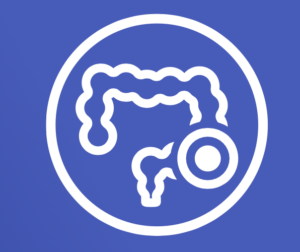In time for Colon Cancer Awareness Month, 23andMe launched its Genetic Insights into Colorectal Cancer in the Black Community study this week that we hope will help improve the performance of genetic report models that could help alert those with a higher likelihood of developing colorectal cancer.
Awareness
March is Colon Cancer Awareness Month. Did you know that Colorectal cancer is one of the most common forms of cancer? It is also one of the leading cancer-related causes of death in the United States, according to the US Centers for Disease Control and Prevention. Its impact on people of color is particularly pernicious because they tend to be diagnosed in later stages of cancer and often receive lower-quality care. That plays a significant role in why
Black and African American individuals are about 20 percent more likely to develop colorectal cancer and about 40 percent more likely to die from it, according to the American Cancer Society.

Early detection makes treatment much more likely to succeed. This is why regular screening—through colonoscopy or stool-based tests—is so important. Knowing your genetic likelihood of developing the condition can raise awareness and motivation to take these vital screening steps.
Predictive Models
Polygenic scores are a relatively new but powerful way to understand a person’s genetic likelihood for a condition. They combine the impact of hundreds or thousands of genetic variants to estimate a person’s chances. Individually, each of these variants only has a small effect on a person’s genetic likelihood, but that impact can grow when many variants are considered together.
But the performance of these models — which rely on extensive genetic studies — tend to perform poorly for Black and African Americans, in part because of the lack of genetic research that includes data from non-European participants.
23andMe wants to improve how its polygenic score for colorectal cancer performs for Black and African American individuals and raise awareness about this form of cancer. That is the aim of this newly launched study.
What is Colorectal Cancer?
Cancer occurs when abnormal cells divide and grow out of control. Colorectal cancer occurs in the colon or rectum, which are sections of the large intestine. This type of cancer usually starts as a growth called a polyp.
Most polyps are not cancerous, but some can turn cancerous over time. Left untreated, these cancer cells can spread beyond the colon or rectum through the blood and into the lymphatic system.
Like many forms of cancers, a complex mix of genetics, environment, aging, family history, and lifestyle influence whether someone develops colorectal cancer.
Genes and Environment
In a few types of colorectal cancer, such as Lynch syndrome, familial adenomatous polyposis (FAP), and MUTYH-associated polyposis, genetics plays an outsized role. But diets that are low in fiber and fresh fruits and vegetables and high in fat and red and processed meats contribute to a higher risk for colorectal cancer, as does a lack of exercise, according to the Centers for Disease Control and Prevention. Things like eating a healthy diet, reducing alcohol consumption, not smoking, and maintaining a healthy weight can help lower one’s risk for the disease.
Current guidelines suggest starting regular screening for colorectal cancer at the age of 45 years. Still, certain risk factors, like a personal or family history of colorectal cancer or symptoms related to the disease, may call for earlier screening.
Although the majority of colorectal cancers are diagnosed in people over the age of 50 and the overall rate of colorectal cancers has declined in the last few decades, a recent study by scientists with the American Cancer Society indicated that rates for those under the age of 55 have gone up. Colorectal cancer is now the leading cause of cancer death for men under 50.
Recognizing these trends and the disproportionate impact of colorectal cancer in the Black community, 23andMe scientists are recruiting Black and African Americans in the United States who have been diagnosed with colorectal cancer and are willing to participate in our research.
23andMe’s Genetic Insights into Colorectal Cancer in the Black Community Study
23andMe’s mission is to help all people access, understand, and benefit from the human genome. Several recent 23andMe initiatives have focused on conditions that affect many individuals but disproportionately affect individuals in the Black and African American communities.
In 2022, we launched the Sickle Cell Carrier Status Awareness Program to help improve access to important information about sickle cell traits and diseases. That year, we also launched the Representation in Sarcoidosis Research Study, studying a rare inflammatory disease that affects the Black community at double the rate of individuals with European ancestry. We hope that with better representation, our products and research will benefit more people, especially when health inequities exist. One such condition is colorectal cancer.
A New Study
The newly launched Genetic Insights into Colorectal Cancer in the Black Community study will recruit Black and African American individuals in the United States who have been diagnosed with the disease. By increasing the amount of data on individuals from this community with colorectal cancer, we hope to be able to improve the polygenic score. This will strengthen our ability to inform Black and African Americans about how their genetics impact their chance of developing this form of cancer.
As part of this effort, 23andMe will reach out to individuals new to 23andMe. We will also connect with those currently participating in other research projects focused on the Black and African American community. The goal is to recruit Black and African American individuals who are 18 years or older, live in the United States, and have been diagnosed with colorectal cancer. If you would like additional information about how to participate in this research, you can learn more here.
If you have questions or want to contact us, email crc-study@23andme.com.